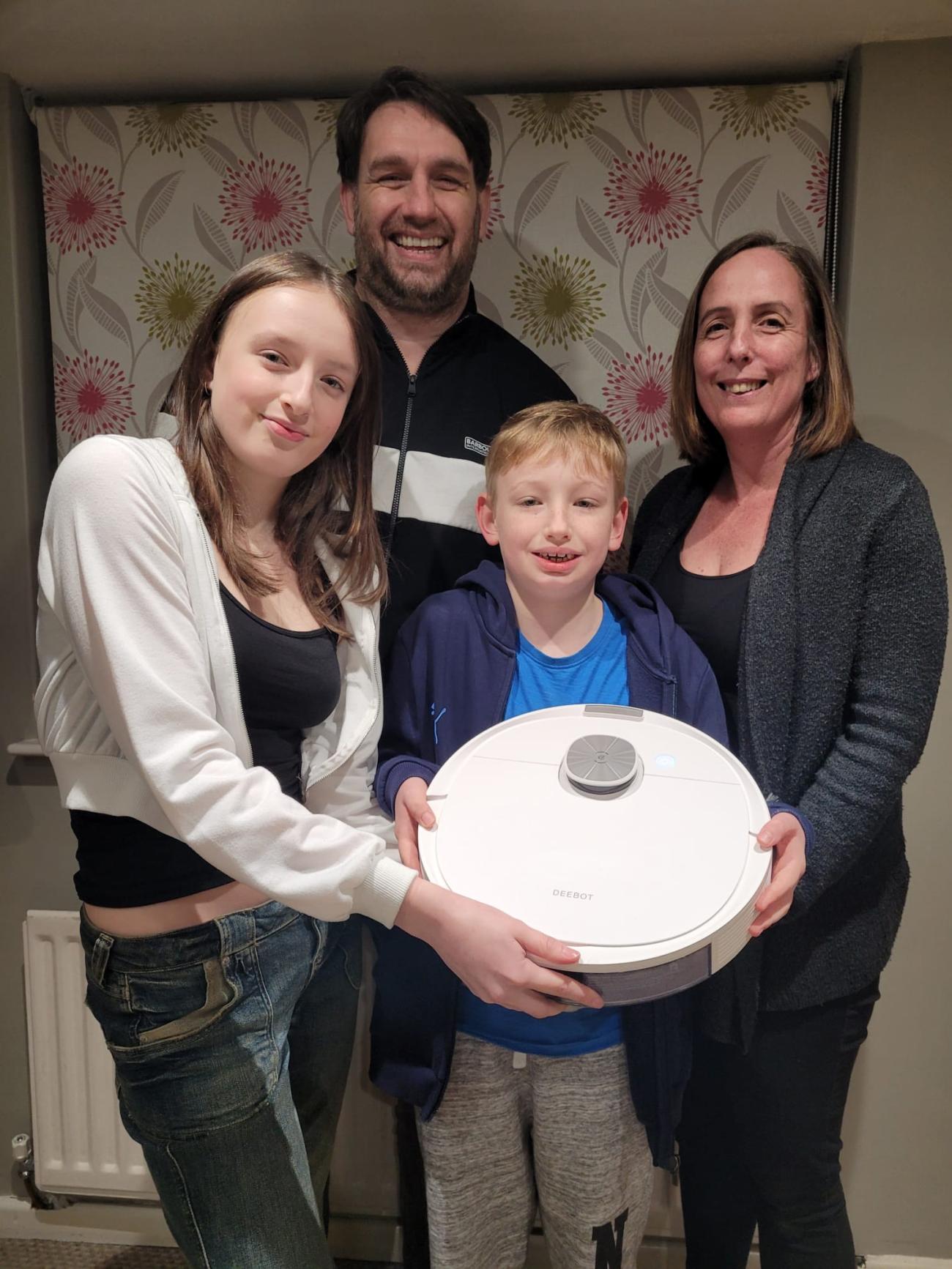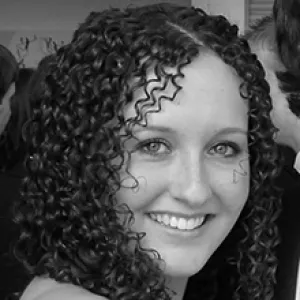The Selley family from Oxford are one of 50 living lab households in and around Oxford who are taking part in a project with researchers at the Environmental Change Institute which aims to understand how digital technologies are used in daily life and the impacts they can have, for example, on time and energy use.

L-R: Charlotte (13), Mark, James (9) and Amy with Haaland the Deebot Ecovac robot vacuum
As part of the four-year iDODDLE project, which looks at the impacts of digital technology on daily life, the living lab households have been trialling various digital technologies and services, such as robot vacuums to see whether interest in task automation spills over from one activity to others.
| Task automation - the application of modern technology to minimise or eliminate the need for human involvement in order to complete a task. |
A main goal of task automation is to reduce or eliminate the manual tasks done by a human, to make processes more efficient, less error-prone and use resources more productively. It can allow humans more time for other activities.
Here the Selley family provide an update on how they are finding the project so far…
James, age nine:
I have really enjoyed being part of the project and especially liked getting to try out Haaland the robot hoover and then winning a competition to keep him forever. I don’t mind being asked to hoover my room now we have him, as all I need to do is tell him to hoover it and he does it."
Mum Amy:
As children, Charlotte (age 13) and James (age nine) have not really known a world without access to most things, on demand, instantly and digitally. When I ask them what they want for their birthday and Christmas, they send me a link to their wish list they have created on Amazon.
Any question they have, homework or otherwise, they will ask Alexa or Google it. Contact with friends is instant and more often than not, nonverbal, via WhatsApp, Snap Chat or whatever the latest digital communication tool is.
They have never owned a CD in their lives, never had to put up with just five channels on the TV - that you couldn’t fast forward or catch up with unless you recorded it.
They have never ordered something and had to wait more than two days for it to arrive.
They have never left the house to collect a take away or experienced not knowing who is at the door until you open it.
When the flyer came through the door about the iDODDLE project, I thought it was perfect for all the family to take part in; to give the children visibility into the world they never knew and for Mark, my husband, and I to learn greater insight into how our lives have transformed and are managed digitally, and how, if at all we could make more effective use and access tools that would give us back more time to spend as a family."

